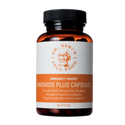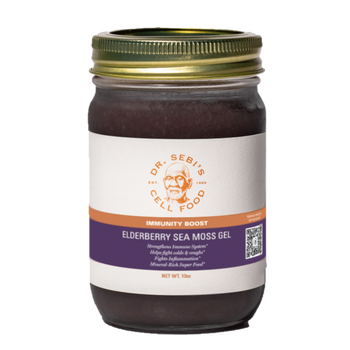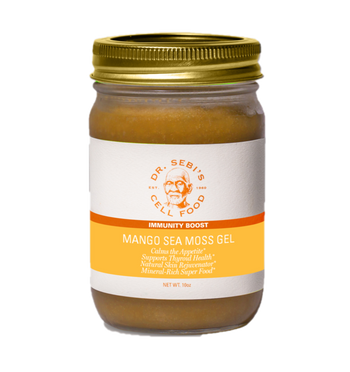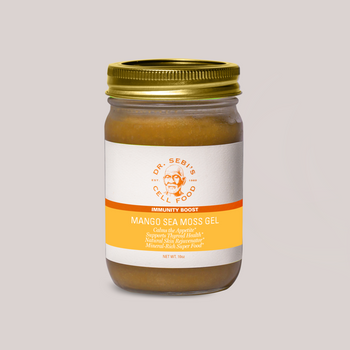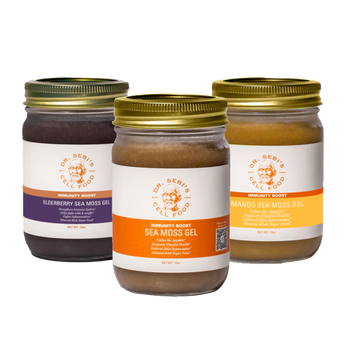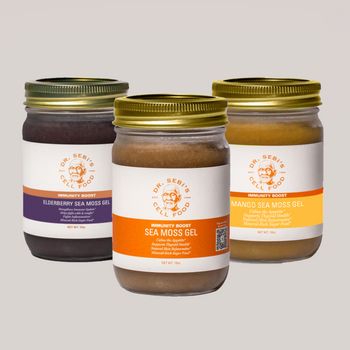Your heart does a lot for you—so why not return the favor with a little help from nature? Sea moss, often called Irish moss, is more than just a wellness trend. This mineral-rich red algae has been cherished for centuries, and now it's gaining scientific attention for its potential to boost heart health. Whether you're managing blood pressure, aiming to lower cholesterol, or simply looking for natural ways to strengthen your cardiovascular system, sea moss might be the support your heart needs.
Why We Love It
1. Rich in Nutrients: Sea moss is packed with vitamins and minerals, including potassium, magnesium, calcium, and iron, which are all critical for maintaining heart health.
2. Supports Cholesterol Health: Some studies suggest that sea moss may help lower cholesterol levels, thereby reducing the risk of heart disease.
3. Anti-inflammatory Properties: The anti-inflammatory compounds found in sea moss can help to reduce inflammation within the body, promoting better heart health.
4. Boosts Immune Function: A strong immune system is linked to heart health, and sea moss can enhance your body's defenses against illness.
5. Promotes Healthy Blood Pressure: The potassium content in sea moss can aid in regulating blood pressure levels, which is vital for cardiovascular health.
How to Use
Incorporating sea moss into your diet can be simple and enjoyable. Here are several ways to use it:
Sea Moss Gel: The most popular way to consume sea moss is as a gel. This gel can be added to smoothies, soups, or sauces.
Capsules: For those who prefer a more convenient option, sea moss capsules are available and can be taken as a dietary supplement.
In Cooking: Use sea moss gel as a thickening agent in recipes for desserts and savory dishes alike.
The Science Behind Sea Moss
Recent studies have explored the health benefits of sea moss. A study published on PubMed indicates that sea moss contains bioactive compounds that may contribute to cardiovascular health improvements. These compounds are thought to play a role in lowering cholesterol levels and reducing the risk of heart disease.
One of the biggest contributors to sea moss’s heart-supportive profile is its rich potassium content. Potassium is an essential mineral that helps balance sodium levels in the body. Too much sodium can cause blood vessels to constrict, raising blood pressure and increasing the risk of heart attack or stroke. Potassium helps relax blood vessel walls, lowers blood pressure, and reduces the strain on the heart. For people with high blood pressure, adding potassium-rich foods like sea moss can be a natural way to support healthier cardiovascular function.
Sea moss is also a natural source of magnesium and calcium—two minerals that are vital for heart rhythm and muscle contractions. Magnesium helps regulate electrical impulses in the heart, reducing the risk of arrhythmias (irregular heartbeat). Calcium, when balanced with magnesium, supports the proper contraction of heart muscles. Many people are deficient in magnesium, and that deficiency can increase the likelihood of heart palpitations, hypertension, and even sudden cardiac events. Sea moss provides both minerals in a bioavailable form that’s easy for the body to absorb.
Another important feature of sea moss is its anti-inflammatory and antioxidant properties. Inflammation is at the root of many chronic diseases, including heart disease. Compounds in sea moss, such as polyphenols and carotenoids like fucoxanthin, help reduce inflammation and neutralize oxidative stress. This is critical because oxidative stress can damage blood vessel linings, trigger plaque buildup (atherosclerosis), and contribute to stiffening of the arteries. By reducing this damage, sea moss helps protect the inner lining of blood vessels, allowing for better blood flow and reduced cardiovascular risk.
Sea moss also contains small amounts of plant-based omega-3 fatty acids and phytosterols. Omega-3s are known for their ability to reduce triglycerides and prevent blood clot formation. Phytosterols, which are similar in structure to cholesterol, compete for absorption in the digestive tract and help lower LDL (“bad”) cholesterol levels. Over time, this can lead to improved lipid profiles and a reduced risk of plaque buildup in the arteries.
Possible Concerns
While sea moss is generally considered safe, some individuals may experience side effects, especially if consumed in large quantities. Possible health concerns include:
Digestive Issues: Some people may experience bloating or diarrhea.
Iodine Sensitivity: Sea moss is high in iodine, which can be problematic for those with thyroid issues.
Allergic Reactions: If you are allergic to seaweed or shellfish, it's best to avoid sea moss.
FAQ Section
Is sea moss safe to consume daily?
Yes, sea moss can be safe for daily consumption in moderate amounts, but always consult with a healthcare provider if you have underlying health concerns.
How much sea moss should I take daily?
A typical serving size is about 1-2 tablespoons of sea moss gel per day, but this may vary based on individual health needs.
Can sea moss help with weight loss?
Sea moss may support weight loss efforts due to its high fiber content, which can promote feelings of fullness and improve digestion.
Final Thoughts
Sea moss is a versatile superfood that can be easily integrated into your daily wellness routine. Its potential to support heart health through essential minerals, cholesterol management, and inflammation reduction makes it a valuable addition to a heart-conscious lifestyle. Always consult your healthcare provider before introducing new supplements—especially if you have underlying medical conditions or take medication.

